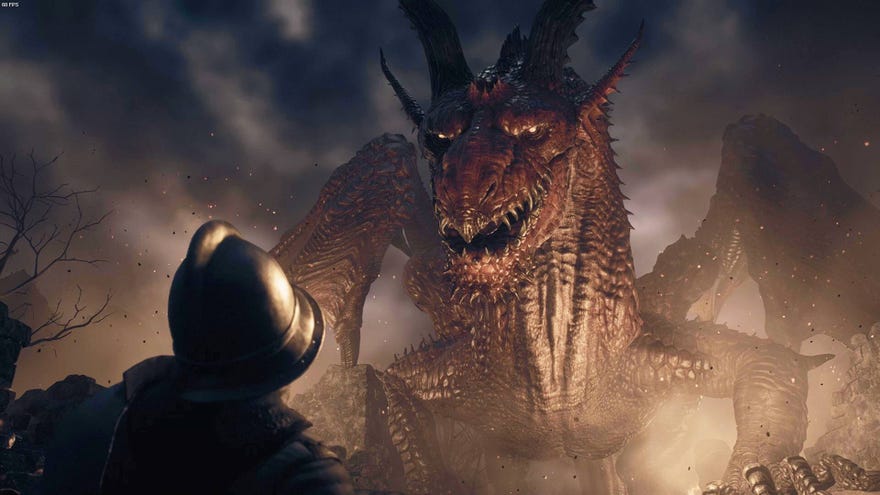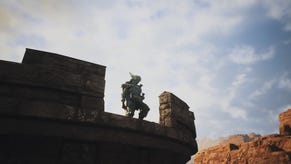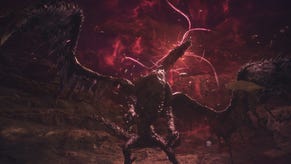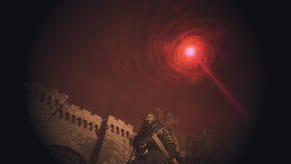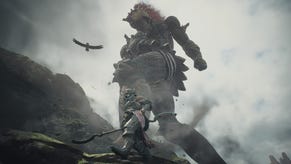Dragon's Dogma 2 review: an action RPG anecdote generator
It's like the first one, but better
You know when you remember a game really fondly and instead of ageing alongside you, it becomes more modern in memory? The Dragon's Dogma 2 experience is, essentially, how I remember its predecessor Dragon's Dogma: Dark Arisen. To me, DD2 feels like a remaster of the first, except it looks nicer, is more expansive, and features some rejigs to things like your AI pals.
Not that any of this is a bad thing! In fact, DD2's closeness to the original makes it just as much of a joy as the first, where your grand adventure isn't only grander, it's still at the whims of a world governed by chaotic physics and the passage of time. Quirks remain, for good and bad, but ultimately this is an RPG where you make travel plans and the game does it best to dash them. It never gets old.
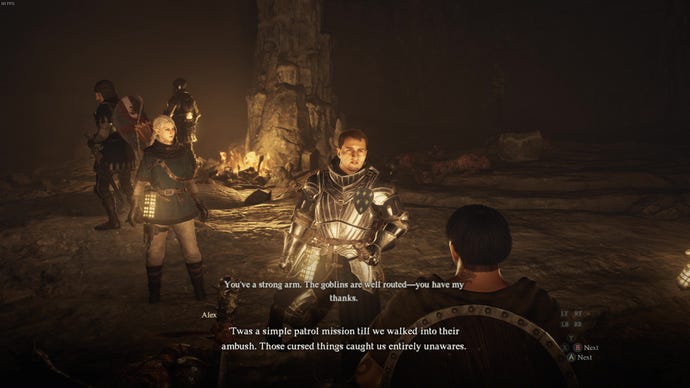
Set in a parallel universe, the story of Dragon's Dogma 2 fulfils the pseudo-remaster criteria, too. Like before, you're a regular Joe whose heart is plucked out by a godlike dragon, granting you semi-immortality, a long bout of amnesia, and the title of Arisen. But where DD was more about taking back your heart from the big bad, DD2 is more focused on how folks rule the land and your role within it all. For instance, you wake up from your draconic open heart surgery to find a fake Arisen has seized control of the pawn army, and a queen is very unhappy you've arrived to derail whatever plans they cooked up together.
All in all, I'm into the wider geopolitics of the fake Arisen plot, especially as you'll encounter different factions like the Elves and the Beastren who all hold differing beliefs on what the Arisen's awakening means for the world; the TLDR is that they aren't all fans of your appearance. While I wouldn't say the story grants you deep connections with characters, or that conversations hold the same weight as peak Game Of Thrones wine sips, I do think it does enough to keep you motoring forwards with a raised eyebrow.
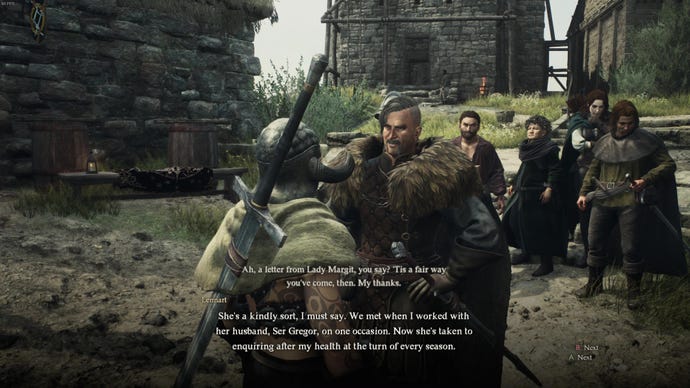
And when it really comes down to it, dogma of the dragons or not, the story's key players set you on a journey that genuinely feels like an adventure. DD2 eschews the convenience of anytime, anywhere fast travel for a system that's reliant on you setting up your own makeshift network with Port Crystals and valuable Ferrystones. You can't hammer along without a care in the world, oh no. Prolonged time on the road will slowly eat away at your maximum health, and nightfall means barely being able to see ahead of you. So, you need to make camp at regular intervals. Travel while the sun's out. Keep your lantern oil topped up. Survey the landscape. Know when to run from a big ogre that's just come bursting out of a forest with a literal tree in its fist.
Those light survival elements aren't ever a faff, though, they're more like manageable things you've got to be aware of before you depart. And they lend travel what I reckon is DD2's greatest strength: a sense of responsibility. Whether you're exploring grassy plains or, later, Battahl's dusty crags, it captures the sense of being on a calculated foray into the unknown, where you're running on the supplies in your packs and the confidence you'll find somewhere to pitch up afterwards.
For the most part, exploration is driven by quests either given out by a primary person or folks who'll wander up to you as you visit towns. Rarely will you ever seek them out, though, as it's a bit like wading through an NPC lottery, where 90% of them will hit you with dismissive one-liners. Many of the quests you're given by townsfolk are often like, "Can you find me this person who's gone missing?", and they'll see you question some people before heading off to a predetermined area on the map (granted, you've got to search for yourself once you've reached the destination). The main story stuff is a bit more elaborate, where you sneak into royal grounds in the dead of night and attending a masquerade, for instance.
Again, what's neat about these quests isn't so much the task at hand, but how you're able to reach their conclusions in interesting ways. If you take too long to find a missing lad and it might result in him succumbing to illness - but if you've got a Wakestone you might be able to revive him there and then! Or if not, you could visit the local morgue later and try again. And when you sneak into the masquerade, you might need a suitably fancy outfit to dupe the guards. You could visit a local shop, but fancy clobber might set you back thousands of gold you don't have. But maybe those fancy looking houses might have the goods inside them...
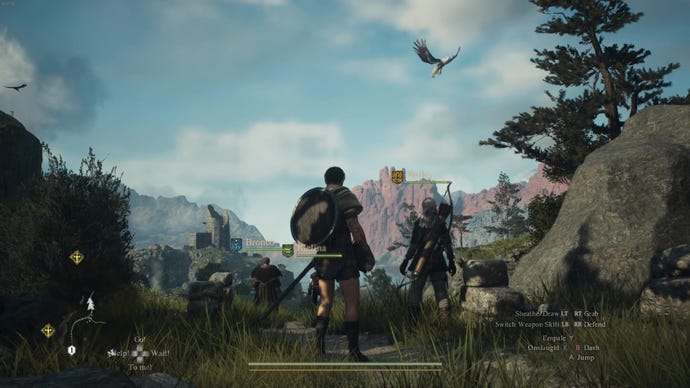
Otherwise, if you've not got a quest on the go, you can feel little lost while out and about exploring the world in DD2, as you're unlikely to encounter rich side stories from randos on the road. There are a lot of caves, little outposts, a town that's a bit empty because you've clearly not progressed the main story enough yet, and beautiful bits where you might fight a big monster. For the most part, exploration for the sake of exploration is driven by a desire to crack open chests and beat everything that stands in your way senseless.
While this might sound a bit tedious, repetition is immediately forgiven when you've got a world that grants you such a sense of place. Sure, people's faces and lip movements are a bit post-2018 Simon Cowell, but you're regularly blown away by vistas that melt those silicone worries - like when the city of Vernworth rises up in the distance and reminds you of just how far you've come, or when you first make the descent into Battahl, as the terrain gradually reddens and the mountain path winds down into a bowl of jagged rocks and dust. Even the smallest details, like country paths that arch around farmers tending to their fields of wheat, are a lovely rendition of realism among what's largely a very Capcom-ass video game.
By that I mean that DD2 has many Capcom-isms - besides the chests and obsession with healing herbs - where it contains very video gamey things that'll compliment or derail those calculated travel plans. One being the return of the pawn system, where everyone creates an AI pal who they'll travel alongside, and who is also popped into an online pool (the Rift) for others to recruit (offline players won't be able to access this pool, but can recruit Capcom-official pawns).
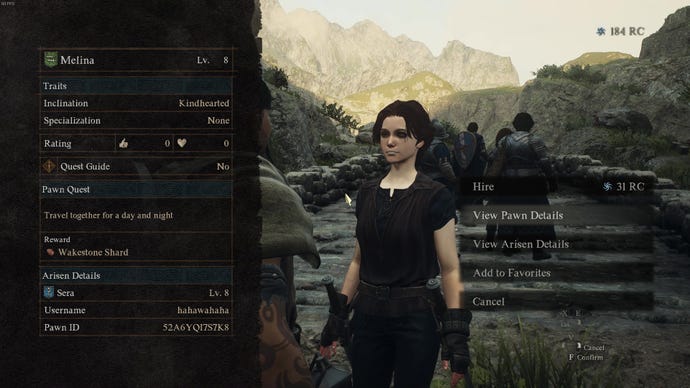
As you level up, you'll regularly recruit up to two pawns, swapping them out as you outgrow them. What's neat is the ability to send them back into the Rift with a parting gift for their owner, alongside a rating that'll determine their place in a global leaderboard. I sent one back with some rotten meat once and I still feel bad about it.
Pawns can get a bit confused sometimes, but for the most part they're programmed with just the right amount of intelligence, and are easy to command with button presses like "Go!" and "To me!". On top of the strategic element of choosing a combination of pawns with vocations (classes) that suit your setup, their behaviours often delight. They can catch you if you've fallen from a great height, high-five after a battle, or lead you to a treasure they'd discovered previously while out exploring with their actual creator. There really isn't anything else quite like it, and I cherish my pawn Bronco, with his friar tuck haircut and World Of Warcraft default human energy.
Other Capcom-isms mean a sort of physicality to combat and exploration, both adding slapstick to encounters and lending your adventures some extra grit. You're able to grab barrels and fling them at foes, or grab goblins and fling them into pits. Heck, you can fling your own pawns if you'd like. There's a lot of clambering onto things and leaping across gorges, or latching onto enemies and jabbing your sword into their eyes. What's neat is the ability to destroy dams or bridges, sending Ogres toppling into water or a pack of hobgoblins into the abyss.
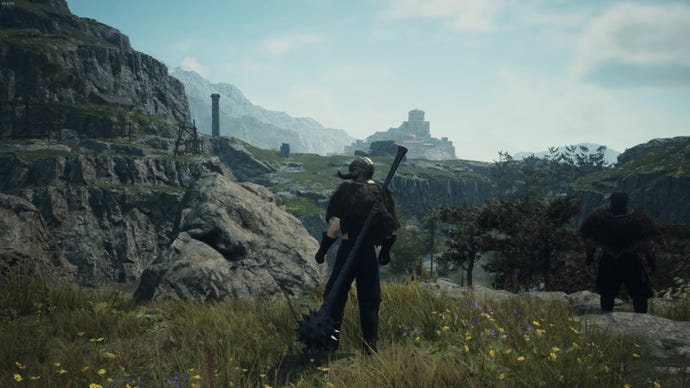
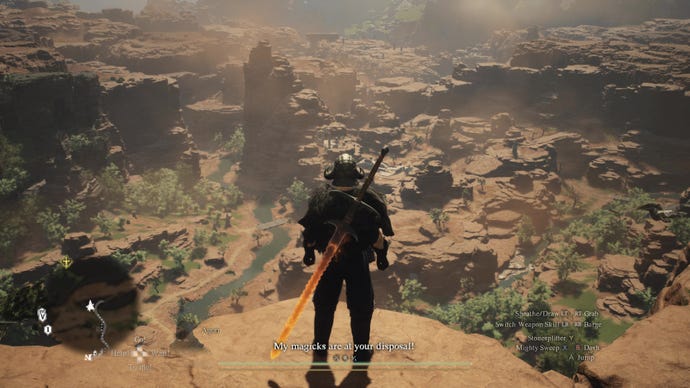
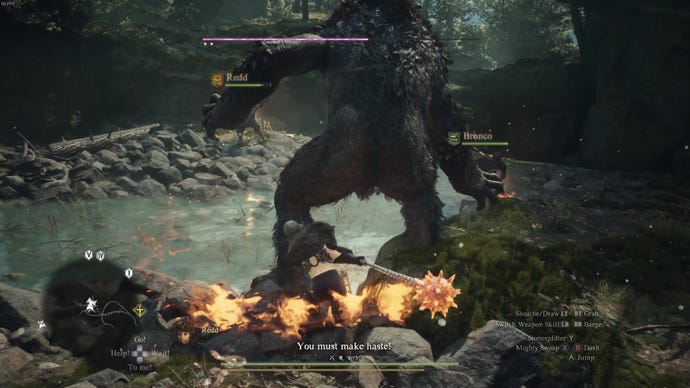
Early fights are perhaps a bit samey, though, with little room to breathe as you're attacked by the gazillionth goblin or troll. Yet again, DD2 gets away with it because combat itself is weighty and approachable, and creates moments where you suddenly overachieve. I've mainly been playing as a warrior, which has strong echoes of Monster Hunter in its long wind-ups that unleash enormous blade arcs that can send even the densest Chimera crashing to the ground. I love how Bronco compliments me, with an ability that flings out a rope that pulls on monsters I've bashed off balance, felling them for an extra beatdown.
And much like the game's unfussy survival elements, vocations are equally as easy to get to grips with as there's no tricky button combos to memorise, but a wheel of easily executable attacks governed by your stamina and your ability to push a shoulder button (I wouldn't play this on keyboard and mouse). Experimentation is encouraged, too, as the barrier to entry is low - advanced vocations are harder to unlock, mind - for vocation swaps and ability unlocks.
When Dragon's Dogma 2 truly shines is when the hefty combat, your pawn pals, and your current travel plans all collide. Or rather, in my case, a griffin who I'd fought roughly an hour earlier splintered the Oxcart I was riding into pieces, and then we tussled until the sun set, totally throwing off my camping plans. Or that time when I wandered past some graves as night fell, only for a skeletal mage to erupt from the earth, rain down electric orbs, and throw my evening's stroll into disarray. Somehow I found a way to survive.
"Finding a way" sums up Dragon's Dogma 2 pretty nicely, I think. The game's an anecdote generator, where all of its AI and combat and day-night-cycle systems coalesce into bouts of chaos that'll test your improvisation skills but never your patience. And while it retains some of the original game's aged quest design and open world repetition, they simply aren't a problem at all, because the act of discovery is just so, so involved.
P.S. Bronco would love to go on adventures with you all. He's very sweet and good at killing! Great at killing!
This review was based on a review build of the game provided by developers Capcom.
